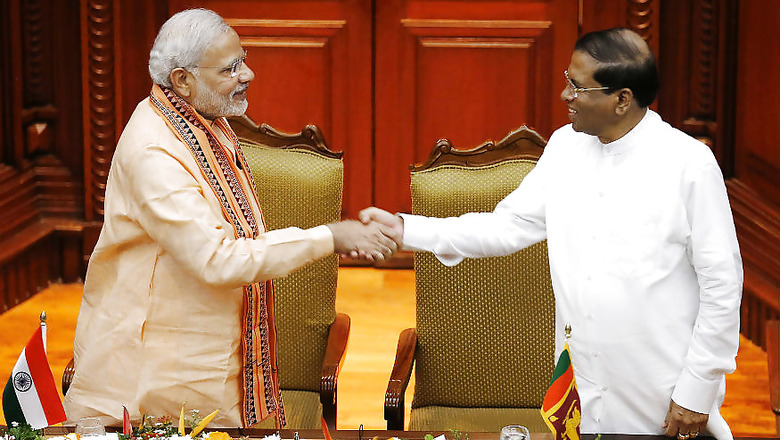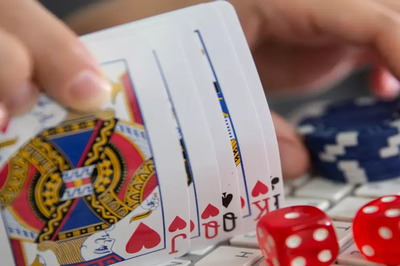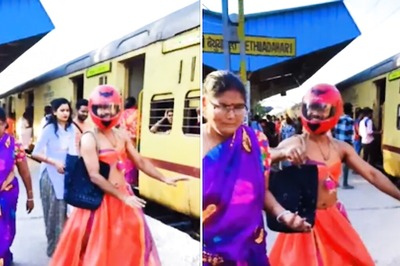
views
New Delhi: When I used to work in Beijing, the cheapest and easiest flight back home was Sri Lankan Airlines through Colombo. Except, there was an annoying stop at Matala in Sri Lanka’s deep south. It was an irritating stop-over because after Matala you’d land in Colombo in less than 20 minutes, making it seem like a pointless exercise.
The only reason there was a stop-over in Matala was its proximity to the Hambantota port. The stop was meant exclusively for a handful of Chinese construction workers and engineers. The Matala stopover was the brainchild of Hambantota’s most famous resident, Mahinda Rajapaksa.
Thankfully, Sri Lanka Airlines doesn’t stop over in Matala anymore, in keeping with the changed political equations in the tear-drop island over the last couple of years. But Hambantota is very much in the news.
Recently, after much hullabaloo, the new government of President Maithripala Sirisena still ended up giving operational control of Hambantota to a Chinese company. This is despite much consternation that was voiced when Sirisena initially took over, even promising a relook at all Chinese projects in Sri Lanka.
The reason why Sirisena had to bow down again to the Chinese is simple — money. The Chinese had built the port at a loan of over $1 billion. It was underwritten by sovereign debt signed off by the Rajapaksa regime.
When Sirisena took over, he realised his tiny island nation simply doesn’t have the money to buy the project back from the Chinese. The Americans were not interested in sinking in that kind of money; Japan was wary after having been bitten earlier and India simply didn’t have the scale or imagination to match the Chinese. The only option before Sirisena was to hand over operational control to the Chinese.
Take the case of the Colombo trans-shipment port, the largest in South Asia. The entire project was designed, planned and built by the Japanese with a large amount of funding from ADB and World Bank, yet the port is now being run by China Merchants Holding Company, one of the largest Chinese shipping companies.
The Chinese are also building another major construction project, a swank new financial district with corporate offices and hi-end luxury apartments. Interestingly, it is being built on land reclaimed from the sea, something the Chinese have perfected in the South China Sea. If you drive down Galle face, which is one of the most scenic spots in South Asia, these days, all you’ll see is dust and host of construction equipment.
And they are doing this in Maldives too, building a massive bridge, four kilometres long over the sea between Male and Hulhumale, the two biggest islands in the Maldives at a cost of $25 million. And it will be ready by mid-2018, just before President Abdullah Yameen goes for re-election.
Basically, if you are a South Asian politician leading an archipelago of islands, wanting to bring together your people living in disparate islands and along comes a third country which promises to not just finance the project, but also build it and build it in time for your re-election, that’s the kind of sweetheart deal no politician can refuse. It is worth pointing out this is what India is up against in Maldives, and PM Narendra Modi still has not paid a visit to this country, the only South Asian neighbour he has not been to. He’s even gone to Pakistan but not to Maldives.
The point is when US President Trump meets Xi Jinping next week, in his first visit to Asia, he’s not going to bring up growing Chinese tentacles in the Indian Ocean region. It’s too far out of his radar. If India needs to continue retaining its hold over the IOR, it is we who have to do a bulk of the heavy-lifting. Fortunately, at least in Sri Lanka’s case, there are sympathetic folks inside their government who will take India’s side. That can’t be said of Maldives. India needs to leverage the goodwill it enjoys in the Sri Lankan corridors of power, but it needs to be backed up by hard cash.
















Comments
0 comment